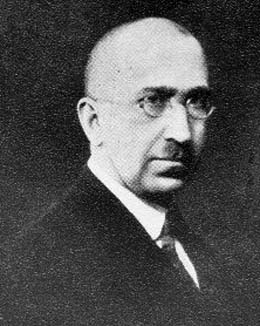


 تاريخ الرياضيات
تاريخ الرياضيات
 الرياضيات في الحضارات المختلفة
الرياضيات في الحضارات المختلفة 
 الرياضيات المتقطعة
الرياضيات المتقطعة
 الجبر
الجبر
 الهندسة
الهندسة 
 المعادلات التفاضلية و التكاملية
المعادلات التفاضلية و التكاملية 
 التحليل
التحليل
 علماء الرياضيات
علماء الرياضيات |
Read More
Date: 5-6-2017
Date: 5-6-2017
Date: 5-6-2017
|
Died: 1953 in Riga, Latvia

Karlis Zalts was educated at the Real Gymnasium in Jelgava, which is a Latvian city southwest of Riga. His schooling was at a time when Latvia was dominated by Russia, as it had been from the end of the 18th century, and the domination would continue until World War I. After Zalts graduated from the Gymnasium in Jelgava in 1904 he went to the Ukraine and studied engineering at the Kiev Polytechnic Institute. He graduated from the Institute in 1912 and began teaching in Kiev.
During 1917 the Russian domination of Latvia ended and, after a brief period of German invasion, the country became independent in a proclamation made on 18 November 1918. Zalts returned to Latvia in 1921 and was appointed to the University of Latvia in Riga. There he taught mathematics to engineering students until 1938.
Zalts was someone of varied interests and during the 1920s, not only did he publish on mechanical calculators, statistics and nomography (graphic representation of data), but he also published on folklore, education, and philosophy. By 1928 he had made a decision to become more deeply involved with mathematical research and he registered as a student in the Faculty of Mathematics and Natural Sciences although he continued to teach mathematics to engineers. By 1937 he had been awarded a Master's Degree in nomography and he was appointed as a dozent in the Faculty of Mathematics and Natural Sciences.
Political moves which would have a major impact on Zalts' career were soon happening, in particular the German-Soviet Nonaggression Pact was signed in August 1939 and from that time on Latvia was doomed to lose its independence again. On 17 June 1940 the Red Army invaded Latvia and only three days later a new government of Soviet supporters was announced. They voted on 21 July for Latvia to become a part of the USSR and on 5 August this became official. The Soviet occupation saw around 35,000 Latvians deported to Russia within a year. During this extremely difficult period the University of Latvia continued to operate and Zalts undertook research towards his thesis.
The German army invaded the USSR in July 1941. For a period Latvia was a province of a larger Ostland (including Estonia, Lithuania, and Belorussia). Zalts continued research at the University of Latvia and in February 1944 he was awarded his doctorate for his thesis on the geometry of deformations. However, shortly after this he was forced by the Germans to go to Dresden to work in a plant which was developing optical equipment for military purposes. He undertook research at the plant until 1 May 1945. The Soviet army had again marched into Latvia in 1944 and a renewed period of Soviet domination began. The army reached the Dresden plant where Zalts was working on 1 May 1945 and he was required by the Russians to work as an an interpreter for the Red Army until 1 September of that year. The Russians then took him to Moscow where he was given a job as a scientific consultant for the Special Construction Bureau. On 16 March 1946 he was allowed to return to Riga.
One might think that Zalts problems would end there, but they did not. He worked for a while in the library, then began teaching again in the Faculty of Engineering Sciences of the University of Latvia. The various Institutes of the Latvian Academy of Sciences were being set up at this time and Zalts was about to be appointed when Soviet checks of his suitability were run and his publications on folklore, education, and philosophy in the 1920s and 1930s were discovered. Also significant was the fact that he had been a major contributor to the Latvian Encyclopedia. This meant that he was the author of a great deal of work which was then banned by the Soviet authorities as they made strenuous efforts to transform the country into a typical Soviet one. Their policy of severe political repression and extreme Russification meant that Zalts became an "unwelcome person". He was allowed to continue teaching mathematics to engineers, but he was not allowed to publish, nor to attend conferences, nor to be promoted at the University.
Articles:



|
|
|
|
تفوقت في الاختبار على الجميع.. فاكهة "خارقة" في عالم التغذية
|
|
|
|
|
|
|
أمين عام أوبك: النفط الخام والغاز الطبيعي "هبة من الله"
|
|
|
|
|
|
|
قسم شؤون المعارف ينظم دورة عن آليات عمل الفهارس الفنية للموسوعات والكتب لملاكاته
|
|
|